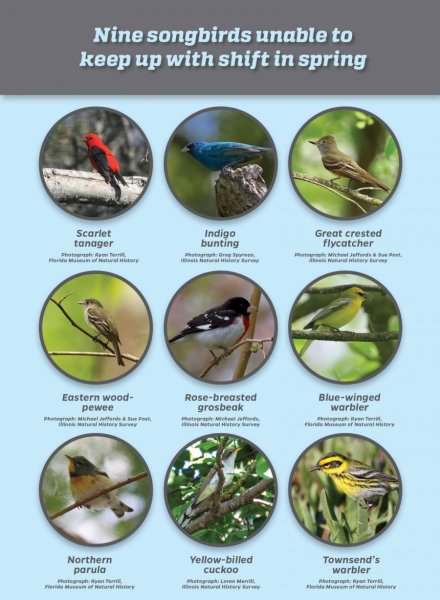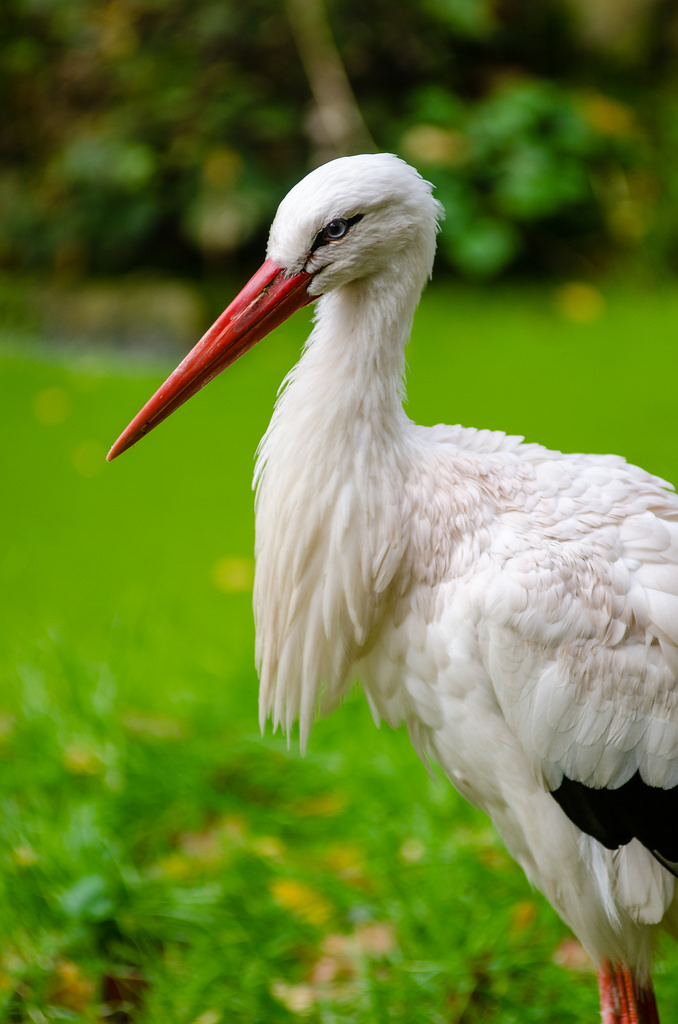 In case you haven’t noticed, spring is coming earlier these days. Looking at climate data over the past century, spring temperatures are arriving three to six days earlier in the southern states and four to seven days early in the northern states. And similar patterns are observed across the planet. Sure, it’s nice when spring arrives, pushing that nasty old winter aside. Except for migratory birds.
In case you haven’t noticed, spring is coming earlier these days. Looking at climate data over the past century, spring temperatures are arriving three to six days earlier in the southern states and four to seven days early in the northern states. And similar patterns are observed across the planet. Sure, it’s nice when spring arrives, pushing that nasty old winter aside. Except for migratory birds.
You see, migratory birds have evolved to time their migration to the photoperiod, that is, the day length. As the days shorten, birds head south; as the days get longer, they go north. If birds responded to the weather, they’d head north on a warm sunny day in February and a week later get hit with typical nasty February day, which would likely have fatal consequences. Photoperiod is predictable, the weather is not. Problem is, insects, flowers, and seeds respond to the weather, mainly temperature. So as the climate warms earlier in the year, insects hatch or come out of hibernation sooner, seeds germinate earlier, plants produce flowers and fruit earlier than previously, but birds are arriving according to their evolutionary-derived photoperiod schedule. And they are arriving too late.
Since birds evolved this pattern of responding to day length over millions of years, things are not going to change that rapidly. Evolution is not a strict task-master, though. As with most evolutionarily derived traits, there is some variability. So when spring arrives, some birds of a particular species will depart for their breeding grounds early, some a little later, and the remainder at the last minute, so to speak. This variability is important because as the climate warms, the early birds will be at an advantage and over several generations, the entire population will migrate northward early. Recent research in the Condor , an ornithological journal, indicates that northward migration for the species studied advanced 2.5 days per decade from the period 1987 to 2008. Southward migration was delayed by 3 days for the same period. Another study demonstrated that some species seem to be unable to adjust their migratory clock and may face extinction because of it.
A Canadian study points out that birds are laying eggs up to an average of 6.6 days earlier per decade. In North America, the Common Murre has advanced its breeding date 24 days per decade whileTree Swallows are nesting up to 9 days earlier than 30 years ago, corresponding to an increase in average spring temperatures.
And an observation on storks noted that 5% of juvenile White Storks wintered in Europe instead of migrating to Africa as they have always done. All of the juvenile storks that remained in Europe survived while only 38% of the migratory individuals did. This study reminds us that migration is dangerous. The main reason migration is advantageous, or was in the past, was because of the cold weather and lack of food in the winter, But with a warmer climate, those factors are not as important.
Migratory birds are particularly vulnerable to climate change because they depend on a breeding range as well as a wintering range and reliable stopover sites enroute. And extinction risks are greater for birds with small ranges or populations. Arctic birds are particularly vulnerable and at least 85 of the world’s bird species breed in global Arctic regions. Vast areas of habitat, including tundra and sea ice, will be lost. Ivory Gulls have already declined in number by 90% over the past two decades.
We have probably reached the point of no return since the feedback system of global warming leads to more global warming. For example, the Antarctic ice cap reflects some heat back into the atmosphere. As the ice cap shrinks, less heat will be reflected and more absorbed. Virtually all countries have promised to try to slow down the causes of climate change. Unfortunately, the U.S. government has chosen to ignore the problem.

Roger,
Congratulations, to my mind, the best post of yours that have read, interesting, informative and insightful.
Yours,
Peter
Thank you!